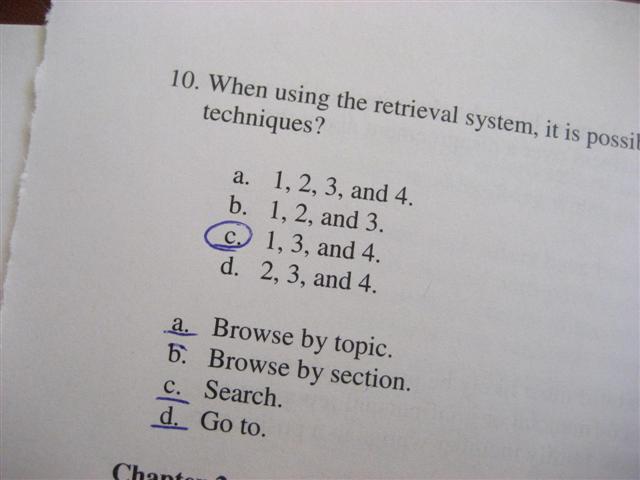First Instinct Fallacy #
Summary #
Popular advice about taking multiple-choice tests is to stick with your first response because, you're more likely to switch from a correct response to an incorrect one. However, many decades of research seem to suggest otherwise.

(Quote & Photo: karen_d on Flickr)
Commentary #
A study on strategies for multiple choice tests posed the following question to students and teachers:
When taking multiple-choice tests, it is sometimes the case that one answer seems correct at first, but upon further reflection another answer seems correct. As a general rule is it better to stick with your initial "first instinct" - or to change your answer if another choice seems better? In other words, which answer is probably more likely to be correct?
Many students and teachers thought that the first answer you choose is more likely to be correct. Yet, the reality is quite different. Here is an excerpt of the study's results regarding changed answers:
- 51% - wrong to right,
- 25% - right to wrong, and
- 23% - wrong to wrong
(Percentages do not add up to 100% due to rounding errors.)
The study goes on to show that the reason so many people think that sticking with your first answer is better is because of excessive counterfactual thinking. That is, when you change answer from a correct response to an incorrect one, you are more likely to think "if only I hadn't..." which is easier to recall in the future.
See Also #
- Counterfactual Thinking and the First Instinct Fallacy for the full text of the study.